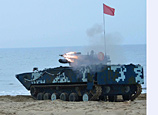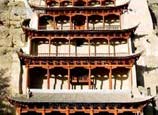
The recent call by the State Council, China's cabinet, for "operational plans to achieve yuan convertibility under the capital account" confirms that there is now a mandate for moving on reforms in this area. With the recent appreciation of the yuan leading to speculation that the People's Bank of China is preparing for a more flexible exchange rate regime, it is worth revisiting what exchange rate flexibility is about, why it is useful for China, what are the possible challenges in attaining it and what that may mean for the time frame.
At the moment, the yuan's exchange rate versus the US dollar is in the hands of China's policymakers. The PBOC intervenes to ensure the spot rate does not move outside the +/- 1 percent band around the "fixing rate". But, more than that, the PBOC intervenes to prevent any moves in the spot rate that it considers unwelcome.
The management of the exchange rate notwithstanding, the yuan has moved in line with macroeconomic fundamentals in recent years. The 40 percent appreciation of the nominal trade-weighted exchange rate since 2005 was pivotal in reducing the current account surplus from more than 10 percent of GDP in 2007 to 2.5 percent of GDP in 2012. Indeed, RBS now considers the yuan broadly "fairly valued" from a macroeconomic perspective.
However, broad "fair value" does not mean that there is no longer any pressure on the foreign exchange market. In early 2013, with renewed financial inflows on top of the surpluses in the current account and net foreign direct investment, overall inflows were sizeable again. While the yuan appreciated quite a bit against the dollar, the main response to the inflows has been intervention, with the PBOC buying on average $2.5 billion every business day in the first quarter.
Making the exchange rate more flexible is about eliminating intervention on the foreign exchange market and introducing true two-way risk, with the exchange rate as likely to strengthen as to weaken.
There are several reasons why more exchange rate flexibility makes sense for China. It is a condition for achieving more monetary independence, with monetary policy set with purely domestic considerations in mind. That is especially important now that China's business cycle is often not in sync with that of the US.
 |
















 Post office demolished by 'mistake' overnight
Post office demolished by 'mistake' overnight


![]()
